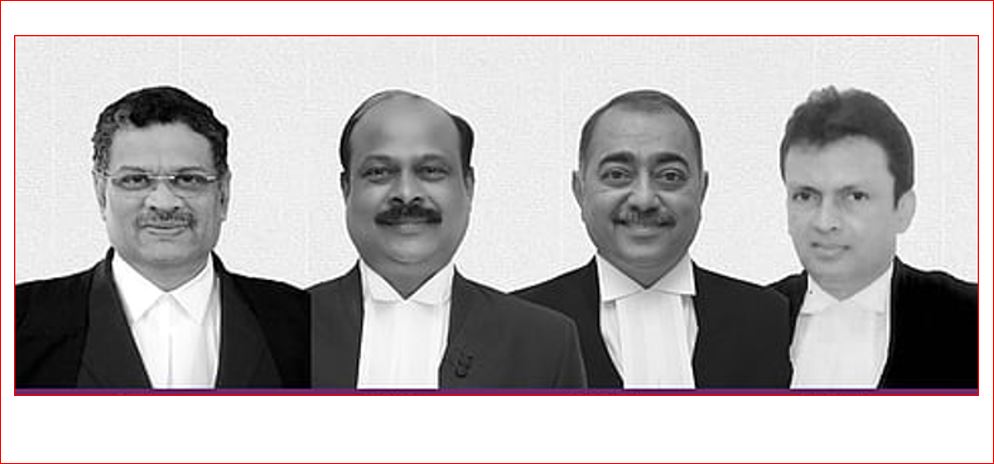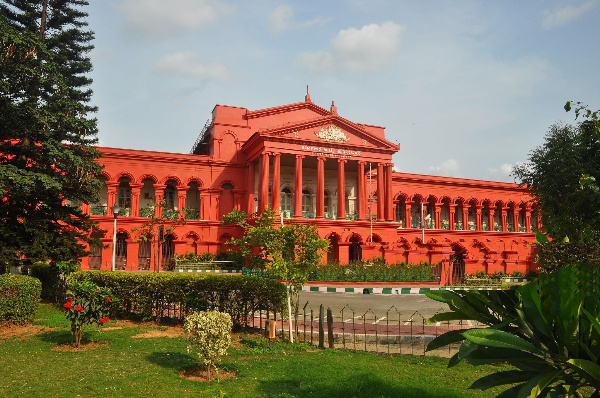B.V. Acharya, Senior Advocate and former Advocate General for Karnataka.
It is seen that among some members of the public, there is a total misconception regarding the powers and functions of the Lokayukta as distinguished from the powers and functions of the Lokayukta Police as also the independence enjoyed by the two. Often one is mistaken for the other.
2. The Karnataka Lokayukta Act, 1984 (for short 'the Act') was enacted by the state legislature providing for appointment of Lokayukta and Upalokayukta who are empowered to receive complaints against public servants either in respect of a "grievance" or "allegation". The definition of public servant includes Chief Minister, Ministers as also other public servants. The Lokayukta or Upalokyukta have the power to receive complaints regarding a “grievance” or an “allegation”. Grievance is a claim that the complainant has suffered injustice due to misadministration regarding which Lokayukta or Upalokayukta can give suitable directions for redressal of the grievance. The complaint regarding allegation mainly pertains to abuse of power or an act of corruption on the part of the public servant and in practice it essentially pertains to offences under the Prevention of Corruption Act.
3. Section 3 of the Act provides for appointment of a Lokayukta who is generally a retired judge of the Supreme Court or a Chief Justice or Judge of the High Court. Section 4 provides for appointment of Upalokayukta who must be a serving or retired judge of the High Court. Section 7 deals with the matters which can be investigated by the Lokayukta or Upalokayukta. The expression "investigation" in Section 7 includes investigation against the Chief Minister or Minister or other public servant. Investigation here may be either regarding a “grievance” or an “allegation”. If it is in case of allegation involving corruption also, the Lokayukta is empowered to investigate. Such investigation contemplated by Section 7 is entirely different from an investigation into corruption charge under the PC Act, which investigation is conducted by a police officer attached to a police station as provided by the Criminal Procedure Code (for short the Code) after registration of a FIR as contemplated by Section 154 of the Code (173 of BNSS). While Section 7 provides for matters, which can be investigated by the Lokayukta; Section 8 prohibits investigation on certain subjects; Sections 9, 10 and 11 deals with the procedure to be followed in conducting investigation by the Lokayukta or Upalokayukta. This investigation ultimately results in a report of the Lokayukta or Upalokayukta as provided by Section 12 of the Act. If the Lokayukta finds the allegation against a Chief Minister or a Minister is prima facie made out, he has a right to direct the concerned public servant including the Chief Minister to resign. If the Lokayukta finds that there is prima facie material to show that the public servant concerned has committed criminal offence and that he should be prosecuted in a court of law, he may pass an order to that effect to initiate prosecution of the public servant concerned as provided by Section 14 of the Act. This in brief is the procedure contemplated where the Lokayukta receives a complaint and holds an investigation resulting in a report under Section 12 which can include issue of a direction to initiate prosecution in a court of law as provided by Section 14 of the Act.
4. Prevention of Corruption Act (for short 'the PC Act') is a Central enactment dealing with the criminal prosecution of public servant facing corruption charges. The initiation of prosecution under the PC Act commences with a information by a party alleging corruption or by suo motu action of the police. Whether it is on a information or suo motu action of the police as the basis of source report, the commencement of the proceeding starts with a First Information Report registered under Section 154 of the Criminal Procedure Code (Section 173 of BNSS Act). After registration of the FIR, subject to the provisions of the Code as well as the PC Act (Section 17), the police officer concerned conducts investigation as provided in Chapter XII of the Code. On completing the investigation, the Investigating Officer has to file a final report under Section 173 of the Code (Section 193 of BNSS) before the jurisdictional court of Special Judge constituted under the PC Act. This final report is generally termed as a charge sheet if the investigation revealed sufficient evidence to prosecute the accused. If no case is made out and the accused is exonerated such final report is termed as a ‘B’ report. Once the final report is filed, the jurisdictional Special Judge has the power either to accept the report or not accept the report or order further investigation. If he finds the charge sheet is correct, he will have to issue process and proceed in the matter. Even if it is a 'B' report, after hearing the parties, the Special Judge has the power to commence prosecution notwithstanding the fact that the investigating authority has filed the 'B' report. Thereafter, the entire procedure will be before the court of Special Judge.
5. It may be noted that the entire Lokayukta Act deals only with the investigation by the Lokayukta or Upalokayukta and the procedure therein as enumerated above results in a report under Section 12 or initiation of proceeding for prosecution under Section 14. Such initiation of prosecution has to be sequal to the order of the Lokayukta. Thus, it will be seen that investigation to be conducted by Lokayukta or Upalokayukta under the Act is entirely different from the investigation contemplated by the Code, which is done only by a police officer after registration of a FIR and culminating in final report be submitted to the court under Section 173 of the Code (Section 193 of BNSS).
6. The Act provides for staff of the Lokayukta, which includes a police wing. The police wing consists of police officials on deputation from the State Police Force. The entire State Police Force including the police wing of Lokayukta are governed by the provisions of the Karnataka Police Act, 1963. The Superintendent of the Police force throughout the State vest in the State Government as held by the divsioin bench of the High Court in Rangaswamaiah’s case. The police wing of the Lokayukta is headed by Police officer of the rank of ADGP. According to Section 15(1) of the Act, for the purpose of investigation under the Act, the Lokayukta or Upalokayukta have the power to utilize the services of the officers of the police wing and when their services are so utilized for investigation by Lokayukta or Upalokayukta, the officers concerned will be under the administrative and disciplinary control of the Lokayukta as provided by Sub-Section (3) of Section 15 of the Act.
7. It is relevant to note that all the offices of the Inspectors of Police working in the police wing of the Lokayukta are declared as police stations by notification issued under Section 2(s) of the Code. By virtue of this notification every Inspector working in the Lokayukta Police Wing becomes an officer in-charge of a police station and is thus, entitled to register FIR relating to offence under the Prevention of Corruption Act, 1988 Act. It is held that a police officer even after he is sent on deputation for Lokayukta Wing, continues to be a police officer governed by both the Code, P.C.Act as well as the Police Act and is therefore, entitled to register FIR and investigate the offences under the Prevention of Corruption Act, 1988 Act and ultimately file a final report to the Special Court under Section 173 of the Code (Section 193 of BNSS). This investigation he holds is not as a staff of Lokayukta but as a Police Officer invested with power under Police Act, Cr.P.C. & P.C. Act.
8. The police officer in the Police Wing of Lokayukta being an officer on deputation, is under the administrative and disciplinary control of the Lokayukta since, it cannot be said that his position is as independent as that of a Lokayukta or the Upalokayukta. That Lokayukta does not exercise supervisory control over the Investigating Officers in the police wing in the matter of investigation and filing of the final reports [See: ‘STATE OF KARNATAKA VS. BASAVARAJ GUDDAPPA MALIGAR’, ILR 2003 KAR 3589]. In the day to day working of the investigation and proceedings relating thereto neither Lokayukta nor the Upalokayukta have any supervisory control over the investigation by the police wing which is being conducted under the Code. In fact a notification issued by the Lokayukta requiring his approval in relation to final report to be submitted to the Special Court has been quashed by the High Court as one without jurisdiction.
9. In a recent case, the Karnataka High Court had to consider the question of independence of the Lokayukta in relation to an investigation conducted by the police wing of the Lokayukta for the offences under the PC Act and IPC upon registration of a FIR pursuant to an order passed by the Special Court under Section 156(3) of the Code directing investigation. This order of the Special Judge was after the Governor as competent authority under the P.C. Act in relation to a Chief Minister had granted approval for investigation as provided by Section 17A of the PC Act, which order of the Governor was unsuccessfully challenged before the High Court.
10. Subsequently, the complainant before the Special Court, which order investigation under Section 156(3) of the Code filed a writ petition (W.P.No.27484/2024) before the High Court seeking transfer of the investigation through the Lokayukta Police to the CBI inter alia questioning the independence of Lokayukta Police to conduct investigation after hearing all the parties dismissed the writ petition declining the request for transfer as per judgment dated 07.02.2025. In this judgment, the first point for determination formulated by the learned Judge is, 'whether the Lokayukta / office of the Lokayukta has questionable independence?'. Answering this question, the learned Single Judge of the High Court held in para 22 as follows:
"I hold the Lokayukta to be an independent agency competent to investigate into allegations against high functionaries including the Chief Minister of State of Karnataka."
11. It is relevant to note that the conclusion as also the point formulated pertains only to the question of independence of the Lokayukta and not the police wing of the Lokayukta.
12. The whole controversy in the case was with regard to the independent character of the Investigating Agency comprising officers of the police wing of the Lokayukta. The question is whether officers of the police wing can be said to be as independent as the Lokayukta itself in relation to an investigation to be conducted against the head of the Government viz., the Chief Minister.
13. In the course of the discussion on this issue, though the learned Judge has referred to the functions of the Lokayukta as also the functions of the investigating officers working in the police wing of Lokayukta, the distinction between these functions particularly with reference to the investigation conducted by the Lokayukta under the provisions of the Lokayukta Act on the one hand and investigation conducted by Lokayukta Police under the Code have been over looked. The result is reading of the judgment shows that the final report to be filed by the Lokayukta police of the Lokayukta to the Special Court stands on a same footing and is as independent as a final report under Section 12 of the Act to be submitted by the Lokayukta after an investigation by him. Though both these are investigations, one is an investigation by the Lokayukta himself personally resulting in his report to the competent authority under Section 12 of the Act, and other is an investigation by the police wing contemplated under Chapter XII of the Code by virtue of its having a police station resulting in final report of that police to the competent special court. The weight to be attached to the report of the Lokayukta under Section 12 of the Act after an investigation by him personally stands on a high pedestal as against a final report by the Lokayukta police who after investigation files a final report before court of Special Judge who is entitled to either accept or reject the said report.
14. While discussing the question of independence the investigating agencies distinction between Lokayukta and the Lokayukta police does not appear to have been kept in mind. The Lokayukta as already stated is a retired judge of the Supreme Court or of the High Court who has the protection of his tenure; he cannot be removed except by means of impeachment as provided by the Constitution. Therefore, the Lokayukta can be considered to be absolutely independent as he is insulated against any external influence even by very high authorities functioning including a Chief Minister. However, in the case of police officials in the police wing as already noted, it is headed by an Additional Director General of Police and therefore, the investigation conducted by such a police officers and the final reports submitted by them to the Special Court cannot stand on the same footing as a report by the Lokayukta himself. The Investigating Agency which is a police wing of the Lokayukta cannot be considered to be as independent as Lokayukta himself so far as investigation is concerned. In the course of the order, it is stated that Lokayukta is independent to investigate into allegations against the Chief Minister or any other Minister or High functionaries such as bureaucrats. This independence of Lokayukta as enjoyed by him to hold investigation as provided under Section 7 of the Act, resulting in a final report by him, is unavailable to the investigation by the police wing when it holds investigation under Chapter XII of the Code and the P.C.Act. The learned Judge has relied upon a division bench ruling of the Karnataka High Court in the case of ‘CHIDANANDA URS. VS. STATE’, (2022 SCC ONLINE KAR. 1488). In the course of the said judgment, there is an observation that even if there is no notification designating inspectors the police in the Lokayukta police wing as police stations, still even without that notification is permissible for Lokayukta to independently exercise the power of getting an FIR registered on the basis of complaint laid before Lokayukta. This observation is totally incorrect. The power of Lokayukta even to hold an investigation against the Chief Minister is only on a complaint to it under Section 3 of the Act and not an investigation as contemplated by the Code. The learned Judge has failed to take into account the fact that the police officers working in the police wing of Lokayukta are part of the police force in the State under the direction of the State Government and they are working temporarily only on deputation for a specified period and therefore, it cannot be said that they are as independent as Lokayukta himself. They are liable to be repatriated to the parent department any time when they will be totally under the control of the Government of the day. The learned Judge concludes "the observations of the division bench would clearly indicate the fact that the Lokayukta enjoys independence and insulation from external influences ………………Lokayukta as an institution has displayed insulation from all external influences in the investigations conducted in the past…………………… It is competent to investigate offences against sitting Chief Minister as it is done in the past.” All these observations referred to the office of Lokayukta individually when it conducts an investigation and records a finding under the Act. The fundamental difference between investigation by Lokayukta under the Act and an investigation by the police wing of the Lokayukta under the Code of Criminal Procedure Code and Prevention of Corruption Act, 1988 are totally ignored.
15. These fundamental differences will have to be noticed to determine whether the Lokayukta Police is as independent as Lokayukta himself in relation to investigation of criminal offences against such a high authority as the Chief Minister of the State, who is the head of the Government as also to the value and credibility to be attached to the reports of the two, which operate in entirely different fields as explained above.
CONCLUSION
It is totally erroneous to equate independence of the Lokayukta with that of the Lokayukta Police, as the two are not at all comparable.



